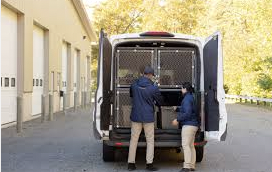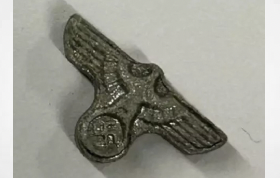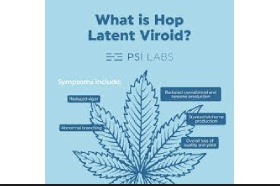An infectious pathogen is currently spreading widely in California’s cannabis farms, attacking plants and growing invisibly for months before spoiling crops just as farmers are getting ready to harvest. Scientists believe it currently affects over 90 percent of farms and could cause billions of dollars in damages to the national cannabis economy.
The hop-latent viroid (HLVd) – first identified in hop plants (close relatives of cannabis) in the 1980s – shrivels cannabis plants, reducing how much weight they produce by as much as 30 percent. The pathogen also destroys the plants’ amount of THC (marijuana’s main psychoactive compound), thus decreasing their value.
Although this pathogen has likely been spreading in cannabis farms for over a decade, at first growers didn’t know what was harming their harvests, since damage only occurred at the end of the crop’s life cycle.
Farmers usually grow cannabis by cutting small pieces off of one plant – referred to as the “mother” – which are then used to propagate hundreds of new plants. These mother plants are artificially prevented from growing flowers in order to keep producing offspring, which means they can silently spread the pathogen for months without showing any signs of disease.
HLVd was first identified in California in 2019 in samples from a Santa Barbara cannabis farm and, by 2021, it had spread to at least 90 percent of the state’s farms. Currently, scientists believe it has also spread in other states, as well as in Europe, becoming the “biggest concern for cannabis” growers worldwide, according to a recent scientific paper.
Fortunately, Purple City Genetics – an Oakland-based startup focused on breeding and cultivating cannabis phenotypes – released a new HLVd test this year which can be conducted on site and delivers results in just a few hours. This is much faster than previous methods for identifying HLVd infections, which involve farmers mailing samples to labs and waiting days or even weeks to get the results.
“By the time you get the results back you may have cut that plant and sold it to your customers. So there is a real need for a high throughput onsite diagnostic test for hop-latent viroid,” said Ali Bektaş, the CEO of Purple City.
Read more

















